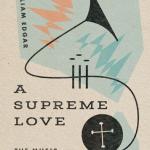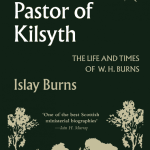This post is part of a series walking through the third volume of Abraham Kuyper’s Common Grace
Because, as we saw in the last post, there is no moral neutrality, there is likewise no religious neutrality. Every nation is religious–some even say that the Netherlands is a “Protestant nation”. But what does that mean? (212)
In the early 19th century, “Protestant nation” “still had an ecclesiastical meaning,” with the idea of there only being one church possible and so having to battle it out with other claimants. After much war [and here I think Kuyper is looking back to the 17th century], a “duality of power” was accepted and Europe split between Roman Catholic nations and Protestant nations, with dissenters (i.e. Anabaptists) being tolerated–albeit as second-class citizens. This identity with Protestantism is the early meaning of “Protestant nation.”
But then the French Revolution upended everything. The Dutch Republic ended and the monarch was expelled and the new state built on the French model was officially “neutral” and “liberal” as a republic. But both “neutral” and “liberal” were deceptive terms, since the real “identity of the state” was just “liberal,” with all its moral and religious connotations. There has been some pushback against this, but this is the new model. Now all churches were allowed, albeit with the old state church as the most prominent one. This included the reintroduction of the Roman Catholic church and the subsequent revival/protest/reform of various Protestant churches. (213-214)
Since then, French liberalism has become increasingly dominant–often at the expense of traditional Roman Catholics and intentionally Reformed Protestants, and this usually in the name of “neutrality.” Power goes more and more to secularists, and officially the “Protestant” nature of the state fades (even as there is popular push-back, even at times from the Roman Catholics). There is still a desire to maintain Protestant identity (though usually not among the elites), but what does this mean?
“Numerically, secularists are very likely already in the majority at present,” and Roman Catholics active in their church may outnumber Protestants. That said, Protestantism still has cultural heft, as well as a say in the ethical issues the government must face. The basic moral beliefs of the people have not (yet) changed, and so liberal government must adapt itself. (216-217)
Some liberal progress has been made to alter the moral character of the people, but the liberal theory has not been able to overcome historical influence, and attempts to do so have only increased resistance. Just look at how people react when socialists push! (217) We must remember the relationship between our convictions, morality, and “our Protestant heritage.” For example, the freedom of conscience the Dutch have long preserved comes from the combination of those three things. Likewise the sanctity of the family.
So we see the strength of historic identity, which has merit in the Netherlands and has historically meant Protestant Reformed convictions–even for Roman Catholics, Lutherans, and Anabaptists who are shaped here.
Dr. Coyle Neal is co-host of the City of Man Podcast an Amazon Associate (which is linked in this blog), and an Associate Professor of Political Science at Southwest Baptist University in Bolivar, MO













